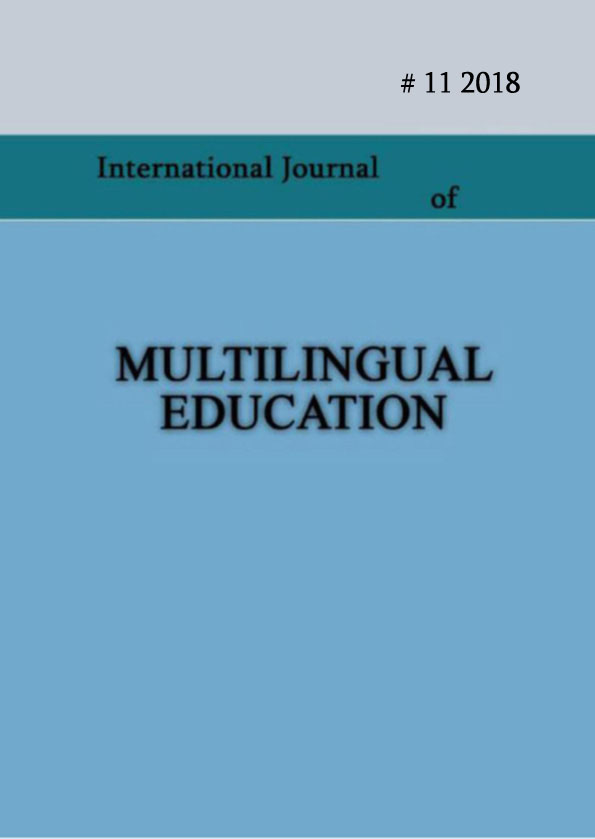The issue of “false friends” in terms of learning a foreign language (Using the example of Georgian and English languages)
Abstract
As is generally known, “false friends” are words, which coincide formally or phonetically in the learner’s native and target languages, but carry different (or partially different) meanings. Generally, the “false friends” phenomenon is studied in the context of translation theory and practice, as well as the language in the context of teaching linguistic or contrastive linguistics.
Vocabulary is an important part of the learning process of a language. Teachers and learners face many obstacles regarding the learning of vocabulary during the learning and teaching process. One of the most important problems is exactly the issue of the so-called “false friends”. Putting lexical units to the wrong use can lead to a learner’s confusion or to a misinterpretation of the text. This issue is under-examined and unexplored in Georgian scientific literature and needs proper attention.
The aim of this paper is:
1. Identify such words on the basis of the data of Georgian and English languages and create the best possible basis for such words. These words are collected into relevant groups (complete distinction, partial distinction, parts of speech, etc.) and are presented in their relevant examples with analysis.
We have such lexical units in Georgian and in English:
ინტელიგენტი - intelligent. In Georgian, this word means polite, well-mannered, sophisticated human, whereas in English it conveys a different meaning, clever.
ორიგინალური (peculiar, special) - original (present or existing from the beginning; first or earliest. created personally by a particular artist, writer, musician, etc.; not a copy).
ბრილიანტი (valuable, precious stone, multifaceted carved diamond, used in jewelry) - brilliant (exceptionally clever or talented. of light or colour, very bright.).
2. Another purpose of this article is to present activities that will help both the teacher and the student to overcome these difficulties. First of all, various lexical exercises, samples of which will be represented in the paper. 2. Vocabulary games 2. Translation. 4. Visualization. 5. Contextual and situational activities (using video and audio materials). 6. Corpus method aAccording to the data of both Georgian and English). 6. Tables and infographics.
The pilot lesson held for 5 students enabled us to identify the positive and negative aspects of the above-mentioned activities.
This paper has a practical value, and the results will be useful for language learners and teachers as well as translators in their field.
References
Abashidze, N., “False Friends of the Translator“ as a Didactic Problem and its Lexicographic Aspect (On the Material of French and Georgian Languages), Batumi II International Symposium in Lexicography, Proceedings(http://www.ice.ge/new/batumi/Batumi 2012.pdf
Carter, R., McCarthy, M., Vocabulary and Language Teaching, London, Longman, 1991 Crystal, David, Dictionary of Linguistics and Phonetics (IV edition).Oxford, Blackwell 1997. Gass Susan M., Selinker, Larry, Second Language Acquisition. Third edition. 2006
Gvarishvili, Z. Translator’s “false friends’” problem in the Process of Second Language Teaching, Issues of State Language Teaching, Problems and Challenges, Conference Abstracts, Tbilisi, 2011
Mothe, Prashant Subhash, Innovative Techniques of Teaching Vocabulary at the Intermediate Level in the Second Language Classroom, http://litu.tu.ac.th/FLLT2013/www.fllt2013.org/private_folder
/Proceeding/377.pdf, retrieved at 31th of January, 2018
O'Neill, M., Casanovas, M., False friends: a historical perspective and present implications for lexical acquisition, http://www.raco.cat/index.php/Bells/article/view/102791/149196
Pčolinská, A., How to Present Vocabulary in a Language Classroom in a Communicative Way, 2010, in February, Humanizing Language Teaching, http://www.hltmag.co.uk/feb10/sart03.htm, retrieved at 31th of January, 2018
Rufus, H., Gouws, D. J. Prinsloo,, Gilles-Maurice de Schryver°, 2004, Friends will be Friends – True or False. Lexicographic Approaches to the Treatment of False Friends, 2004.
Published
How to Cite
Issue
Section
License
Copyright (c) 2018 Ketevan Gochitashvili, Giuli Shabashvili

This work is licensed under a Creative Commons Attribution-NonCommercial 4.0 International License.
Copyright (c) - Authors who publish with this journal agree to the following terms: Authors retain copyright and grant the journal the right of first publication with the work simultaneously licensed under a Creative Commons Attribution-Noncommercial 4.0 International License, which allows others to share the work with an acknowledgement of the work's authorship and initial publication in this journal. Authors are permitted and encouraged to post their work online (e.g., in institutional repositories or on their personal website) prior to and during the submission process, as it can lead to productive exchanges, as well as earlier and greater citation of published work (see The Effect of Open Access). Authors may enter into separate, additional contractual arrangements for the non-exclusive distribution of the journal's published version of the work (e.g., post it to a repository or publish it in a book), with an acknowledgement of its initial publication in this journal.

